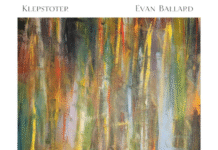Why do musical artists and their teams continue to pitch songs and projects to us at Across The Culture (ATC) Sound?
In a world where Machine Learning (i.e. algorithms) and a persistently small number of human decision-makers choose the handful of artists who receive major investment, indie music blogs continue to empower artists to build a trustworthy presence beyond the major label system and encourage artists and listeners to engage in more direct business. Learning how to pitch music to credible indie music blogs, then, is an important skill to have as an independent artist or artist representative.
Between this site and our parent website Across The Culture, the ATC portfolio contains a number of thorough artist profiles and music reviews from a wide variety of independent and major label artists. Whether they were en route to stardom or sitting in obscurity, these artists and their teams pitched music to our blogs because they deeply valued the credibility a thoughtful, honest written review could provide for their art.
Any serious independent artist with a low marketing budget needs to make the most of organic (i.e. free) opportunities to gain social proof for their music. Submitting songs to indie blogs are chief among these opportunities to this day, and pitching successfully requires a couple of important steps and considerations. Here are the ones we’d like to highlight from years of receiving such submissions.
Know Who You’re Pitching Your Song To
Across The Culture has accepted song submissions from artists with next to no online visibility and turned down artists with viral singles. Why?
Quality independent music blogs have editorial perspectives. They do not cover anything and everything for the sake of new content, meaning great songs and streaming successes regularly get turned down by blogs due to misalignment with the platform’s content focus.
Understanding your values while doing your research will help you more easily identify indie music publications to submit your music to. Alignment in areas such as mood, worldview, and genres covered does not guarantee a successful pitch, but the chances of a quality engagement increase significantly when an independent artist has a strong “why” for pitching a specific blog.
Submission Method: Where/How a Blog Wants You To Pitch
Sometimes, where an artist submits their music is more important than the quality of the submission. Increasingly, blog editors and writers are shifting their attention from email inboxes to collaborative music marketplaces such as SubmitHub.
Music blogs of all sizes are often overwhelmed with the number of pitches they receive. The demand for music promotion in a world with millions of independent artists is much higher than the supply of credible music review platforms. Thus, online platforms that vet and host reputable blogs have popped up as a common solution to the problem of too many artists pitching their music and being taken advantage of by curators (i.e. bloggers, social media influencers, Spotify playlisters) who demand modern-day payola in exchange for placement on their platform.
Sticking to blogs specifically, music writers that actually want to listen to your submissions can increasingly be found on marketplaces such as SubmitHub, Groover, Musosoup, and Pillargram. These marketplaces require artists to make profiles and pay small fees to pitch a vetted curator with guarantees of the curator listening to your work and, if the artist chooses, to receive feedback.
Here’s a summary of what you need to know about pitching blogs that take submissions via one of these marketplaces:
- Blogs will often state their preference for a third-party submission in a dedicated “Contact” or “Submissions” page (here’s a good example)
- Paying to pitch on SubmitHub or a comparable platform is paying for fair consideration, not guaranteed placement (i.e. payola)
- The value of receiving a dedicated listen and feedback from a trustworthy blog editor is usually well worth the $1-$5 per pitch; response and acceptance rates are much higher on these platforms compared to traditional email pitching
For blogs that still accept email submissions, the same “Contact” and “Submissions” pages that house information on preferred submission platforms will often mention required language to use in an email subject line plus necessary files to attach in order for your pitch to be valid.
Draft A Pitch Template
Blog submissions can happen in a number of ways including third-party platforms (e.g. SubmitHub) and social media DMs. But many indie music blogs still receive song submissions through good old-fashioned email. It is a direct, professional, and effective tool at organizing and containing all relevant materials necessary for a strong pitch.
Every pitch should be personalized to the blog you are reaching out to, but a pitch template will be critical for streamlining the process. Consider the items below when creating an email template to pitch your songs to music blogs.
Narrative First, Numbers Next
Because the internet (shoutout Donald), musical artists have more information about the performance of their songs and their brands than ever before. That being said, quantitative data does not tell the story of an artist better than people can. Statistics help people grasp reality, but they are not reality in and of themselves. Numbers need to be used strategically in order to communicate anything of value.
In short: do not lead with your followers, stream counts, and view counts when submitting a song to an indie music blog. Those pieces of information need to support your artist narrative, not become the narrative.
Who Are You? Where Have You Been? Where Are You Going?
a song submission is a chance to make a valuable friend as much as it is a marketing play
If you are an independent artist that has figured out how to earn significant online engagement, you have valuable social proof of your art’s value. But what is it about you, exactly, that is resonating with listeners? What differentiates you and/or your music?
With so many ways (of varying ethical degrees) to increase online engagements, help the writer/editor you are pitching understand why anyone should care about your music. An artist earning a few thousand streams per song mashing regional subgenres of rap and shooting peculiar, low-budget music videos is a more interesting subject to us, for instance, than a guy who went viral on TikTok for his perfectly-okay song-of-the-summer attempt.
As editor of ATC Sound, I want to help artists along on their journey. I’d rather be invited to the next stop on your journey than to be told you already made it. Even a pitch that doesn’t result in a published piece on your music can succeed in building a relationship and gaining a new set of ears tuned into your future work.
There are a number of artists who have pitched Across The Culture that I initially declined to cover but have continued to listen to years later. Indie music bloggers love music and those who make it — a song submission is a chance to make a valuable friend as much as it is a marketing play.
Electronic Press Kit (EPK)
An EPK is a collection of essential media (i.e. music, photos, videos) and information about an artist meant for industry professionals consider before doing business with an artist. Along with writers and editors, this includes A&Rs, radio staffers, and booking agents.
Relevant supporting content is necessary for a publication to put together a quality piece on an artist. An individual blog/article requires a feature photo to properly engage readers and signal the content’s relevance to them before they decide to read. Additional photos in the piece can help to break up text for better readability and visual reinforcement for written coverage of an artist and their music.
Other Considerations When Pitching Music To An Indie Blog
Data Privacy
Using embargoed (i.e. protected) links to give a blog pre-release access to a song and other assets adds professionalism and confidentiality that both protects your work and earns respect from whoever it is you are pitching.
Samply has a good free tier of private streaming link creation and a reasonable “Indie” tier for $10 a month and 1 TB of storage if you need the additional space and more freedom to implement your brand (not a paid endorsement). Explore a few options, but you don’t need a ton of features from a private streaming link service to get the job done.
Timing
If submitting a new song or project to an indie blog is part of your release strategy, pitching a blog at least one week before the release date is recommended. The privilege to hear unreleased music and be the first to talk about it is not lost on writers and editors, so blogs love to assist with new release marketing. Help yourself by helping a writer/editor cover your song in a timely manner by pitching your upcoming song in a timely manner.
Things To Do After Submitting A Song To A Blog
Don’t stop! Persistence is most of the battle in music, especially without an established institution behind you. Below is a list of potential next steps based on the state of your song pitch several days later:
- Politely and concisely follow up on your pitch if you’ve heard no response
- Identify similar blogs + the points of contact you’d like to approach
- Use your initial pitch as a template and begin customizing it for other priority blogs
- Don’t wait on a blog for validation: use your pitch template as the foundation for your own narrative building
- YouTube community posts, social media captions, and perhaps your own blog are all spaces where your artist narrative can gain definition and visibility
How ATC Sound Can Help On Your Independent Music Marketing Journey
Best of luck to anyone daring enough to take their self-expression seriously in a world built to stifle it. There are a few ways ATC Sound can accompany and support you on your journey.
Submit Your Music To ATC Sound For Review
If you are an independent artist and would like your music considered for review by ATC Sound, please submit your song/project (released or unreleased) via our free submission form.
Subscribe to ATC Sound
- Subscribe to ATC Sound’s email list as we develop an informative newsletter for both independent music artists and supporters
- Subscribe to the ATC Sound YouTube channel for indie artist music videos and music industry analysis










